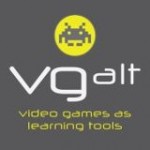The eHealth Seminar Series welcomes
Brock Dubbels, PhD
Department of Computing and Software, McMaster University
Abstract:
Do games and play have a place as medical interventions? How can games and play inform designing instruction and assessment contexts? Can games and similar software design per- suade individuals towards healthier lifestyles and adherence? In this overview, research will be presented from studies and experimentation from laboratory and instructional settings as evidence for using games for accelerating learning outcomes, persuasion, medical inter- ventions, as well as professional development and productivity. Games offer individuals a learning environment rich with choice and feedback . . . not only for gathering information about learning, but scaffolding learners towards competence and mastery in recall, comprehension, and problem solving. The difficulty with games may be our view that games are a form of play, an undirected, frivolous children’s activity. In this presentation research and examples of games and play inspired activities will be presented for motivating learners, designing effective instruction, improving comprehension and problem solving, providing therapeutic interventions, aid- ing in work-place productivity, and professional development.
Brock Dubbels Ph.D.is an experimental psychologist at the G-Scale Game development and testing laboratory at McMaster University in Hamilton, Ontario. His appointment includes work in the Dept. of Computing and Software (G-Scale) and the McMaster Research Libraries. Brock specializes in games and software for knowledge and skill acquisition, eHealth, and clinical interventions.
Brock Dubbels has worked since 1999 as a professional in education and instructional design. His specialties include com- prehension, problem solving, and game design. From these perspectives he designs face-to-face, virtual, and hybrid learn- ing environments, exploring new technologies for assessment, delivering content, creating engagement with learners, and investigating ways people approach learning. He has worked as a Fulbright Scholar at the Norwegian Institute of Science and Technology; at Xerox PARC and Oracle, and as a research associate at the Center for Cognitive Science at the Universi- ty of Minnesota. He teaches course work on games and cognition, and how learning research can improve game design for return on investment (ROI). He is also the founder and principal learning architect at www.vgalt.com for design, production, usability assessment and evaluation of learning systems and games.
And rumour has it, he has a sweet bike!


I want to invite you to a colloquium March 7, at 1430– Department of Psychology, Neuroscience & Behaviour (PNB)
at McMaster University
Video Games as Learning Tools
Brock Dubbels, PhD.,
G-ScalE Game Development and Testing Lab
McMaster University
Dubbels@McMaster.ca
Should games and play be considered important in designing instructional contexts? Should they be used for professional development, or even become a part of our productivity at work? Games offer individuals a learning environment rich with choice and feedback . . . not only for gathering information about a student’s learning, but that also demand mastery in recall, comprehension, and problem solving. The difficulty with games may be our view that games are a form of play, an undirected, frivolous children’s activity . In this presentation research and examples of games and play inspired activities will be presented for motivating learners, designing effective instruction, improving comprehension and problem solving, providing therapeutic interventions, aiding in work-place productivity, and professional development.
Department of Psychology, Neuroscience & Behaviour (PNB)
Psychology Building (PC), Room 102
McMaster University
1280 Main Street West
http://www.science.mcmaster.ca/pnb/news-events/colloquium-series-events/details/274-brock-dubbels-tba.html







